Google Doodle: who is Michael Dertouzos?
The Greek professor would have celebrated his 82nd birthday today
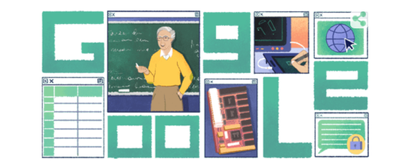
Google users may have spotted a new Doodle today that celebrates the life of the Greek computer scientist Michael Dertouzos.
The scientist, who would be 82 today had he not died 17 years ago, is best known for predicting in 1976 that there would be a personal computer in one of every three homes by the mid-1990s, the Mirror reports.
Born in Athens on 5 November 1934, Dertouzos was the son of an admiral in the Greek navy, the newspaper says. His mother was a concert pianist. He studied at Athens College and the University of Arkansas before earning a PhD from the Massachusetts Institute of Technology (MIT).
Subscribe to The Week
Escape your echo chamber. Get the facts behind the news, plus analysis from multiple perspectives.

Sign up for The Week's Free Newsletters
From our morning news briefing to a weekly Good News Newsletter, get the best of The Week delivered directly to your inbox.
From our morning news briefing to a weekly Good News Newsletter, get the best of The Week delivered directly to your inbox.
After joining the university’s faculty in 1964, Dertouzos helped MIT’s Laboratory for Computer Science (LCS) develop “RSA encryption”, a technology that has become vital in sending messages across the internet more securely, says CNN.
Under the Greek professor’s leadership, LCS became “one of the largest research labs at MIT” and the American home of the World Wide Web Consortium, an international standards organisation for the internet, according to the US broadcaster. This was partly thanks to Dertouzos recruiting Sir Tim Berners-Lee, the inventor of the web, to run the consortium.
Following Dertouzos’s death on 27 August 2001, Berners-Lee said there probably wouldn’t have been a World Wide Web Consortium without him, the US broadcaster reports.
The internet’s key supporter
The Independent believes that Dertouzos, who played a part in developing core web technologies, will be “remembered most” as a key supporter of the internet at a time when web giants such as Amazon and Google were still in their infancy.
In his 1997 book What Will Be: How the New World of Information Will Change Our Lives he successfully predicted that the web would become an “Information Marketplace where people and their computers will buy, sell and freely exchange information and information work.”
Dertouzos believed everyone should have the right to access the internet. In 2001 he spearheaded a campaign with MIT’s Artificial Intelligence Lab to research technologies that would benefit humanity, The Independent says.
Create an account with the same email registered to your subscription to unlock access.
Sign up for Today's Best Articles in your inbox
A free daily email with the biggest news stories of the day – and the best features from TheWeek.com
-
 Why au pairs might become a thing of the past
Why au pairs might become a thing of the pastUnder The Radar Brexit and wage ruling are threatening the 'mutually beneficial arrangement'
By Chas Newkey-Burden, The Week UK Published
-
 'A direct, protracted war with Israel is not something Iran is equipped to fight'
'A direct, protracted war with Israel is not something Iran is equipped to fight'Instant Opinion Opinion, comment and editorials of the day
By Harold Maass, The Week US Published
-
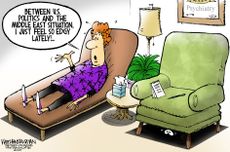 Today's political cartoons - April 17, 2024
Today's political cartoons - April 17, 2024Cartoons Wednesday's cartoons - political anxiety, jury sorting hat, and more
By The Week US Published
-
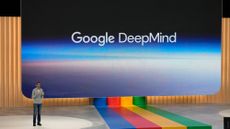 Artificial history
Artificial historyOpinion Google's AI tailored the past to fit modern mores, but only succeeded in erasing real historical crimes
By Theunis Bates Published
-
 Is Google's new AI bot 'woke'?
Is Google's new AI bot 'woke'?Talking Points Gemini produced images of female popes and Black Vikings. Now the company has stepped back.
By Joel Mathis, The Week US Published
-
 Why Google search results have 'gotten worse'
Why Google search results have 'gotten worse'Under The Radar Search engines are 'flooded' with 'garbage' content, say experts
By Chas Newkey-Burden, The Week UK Published
-
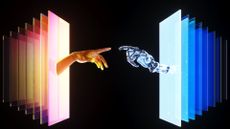 2023: the year of the AI boom
2023: the year of the AI boomthe explainer This year, generative artificial intelligence bypassed the metaverse and became the next big thing in tech
By Theara Coleman, The Week US Published
-
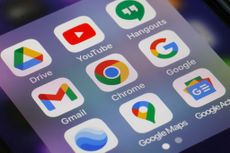 Is using Google's Enhanced Safe Browsing mode worth it?
Is using Google's Enhanced Safe Browsing mode worth it?Talking Point The mode has its positives and its drawbacks
By Justin Klawans Published
-
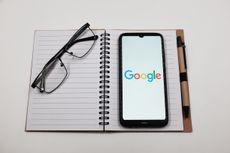 Google is pitching an AI journalism tool to major news outlets
Google is pitching an AI journalism tool to major news outletsTalking Point News executives find the technology called Genesis unsettling
By Theara Coleman Published
-
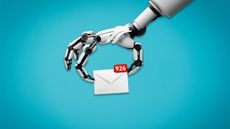 Forget junk mail. Junk content is the new nuisance, thanks to AI.
Forget junk mail. Junk content is the new nuisance, thanks to AI.Speed Read AI-generative models are driving a surge in content on fake news sites
By Theara Coleman Published
-
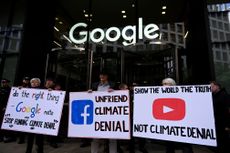 Why hasn't Google enforced its policy to stop climate disinformation?
Why hasn't Google enforced its policy to stop climate disinformation?Talking Point Is Google's acceptance of climate misinformation intentional?
By Devika Rao Published